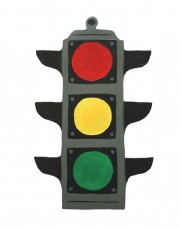 Are your thoughts stopping you, slowing you down or moving you forward?
Are your thoughts stopping you, slowing you down or moving you forward?
We ARE NOT just at the mercy of our thoughts. We can stop and delete the thoughts that make us feel BAD and hold us back and replace them with POSITIVE thoughts that make us feel good and move us forward!
4 Steps to Thought Stopping
Step One: AWARENESS!
You can usually tell when you are having a negative thought because you will have a negative feeling along with it. When you feel the negative feeling, ask yourself, “What was I just thinking? What was going through my mind?”
Step Two: STOP!
Stop the thought or image by seeing a big, red stop sign in your mind’s eye and silently and firmly shout STOP! Visualize yourself deleting that thought-like pressing “delete” on your computer.
Step Three: REPLACE!
Instead of telling yourself, “I’ll never get things right,” train yourself to say, “I’m having a thought that I’ll never get things right.”
This little change of wording gives you distance and reminds you that your negative thought is just a thought—it’s not reality!!
Saying, ‘Boy, did I feel stupid,’ rather than ‘I am so stupid’ may seem minor, but there’s a significant difference,” The former describes a thought, and you are not your thoughts!
You can learn to say, “There goes my gremlin again—with that I’m not good enough story.”
This helps remind you that it is just a story and not the truth.
Now REPLACE it with a thought that empowers you.
“I’ll figure it out,” “I can do this,” I’m quite capable,” “I can handle this.”
Step Four: STAND UP!
Have a nice heart to heart chat with your gremlin and remind him of all the strengths and positive attributes you do have. Tell him you’re not perfect but no one is. Tell him it’s nice he’s looking out for you but you are fine without his critical comments. It will feel empowering to find your voice and stand up for yourself! Even if it is to yourself!
As you practice, practice, and practice, you will learn to tame your inner gremlin with the benefit of INCREASED SELF-CONFIDENCE and belief in your ability!
Use this thought stopping technique every time you have negative self-talk. DO NOT let it go unchallenged!

 Have you ever had the echoes of what someone has said about you keep repeating over and over in your head? You can’t seem to shut it out.
Have you ever had the echoes of what someone has said about you keep repeating over and over in your head? You can’t seem to shut it out. I shared four irrational thought patterns last week; here are four more this week.
I shared four irrational thought patterns last week; here are four more this week.
